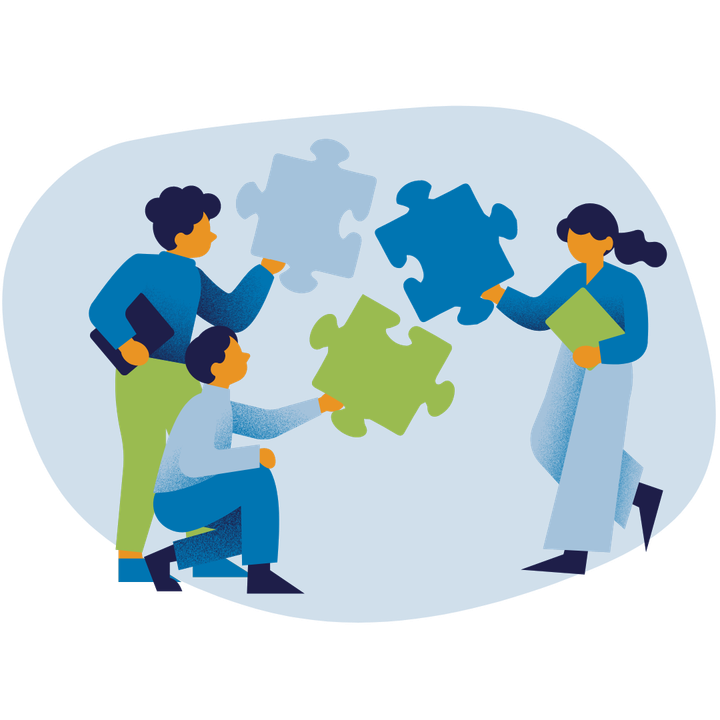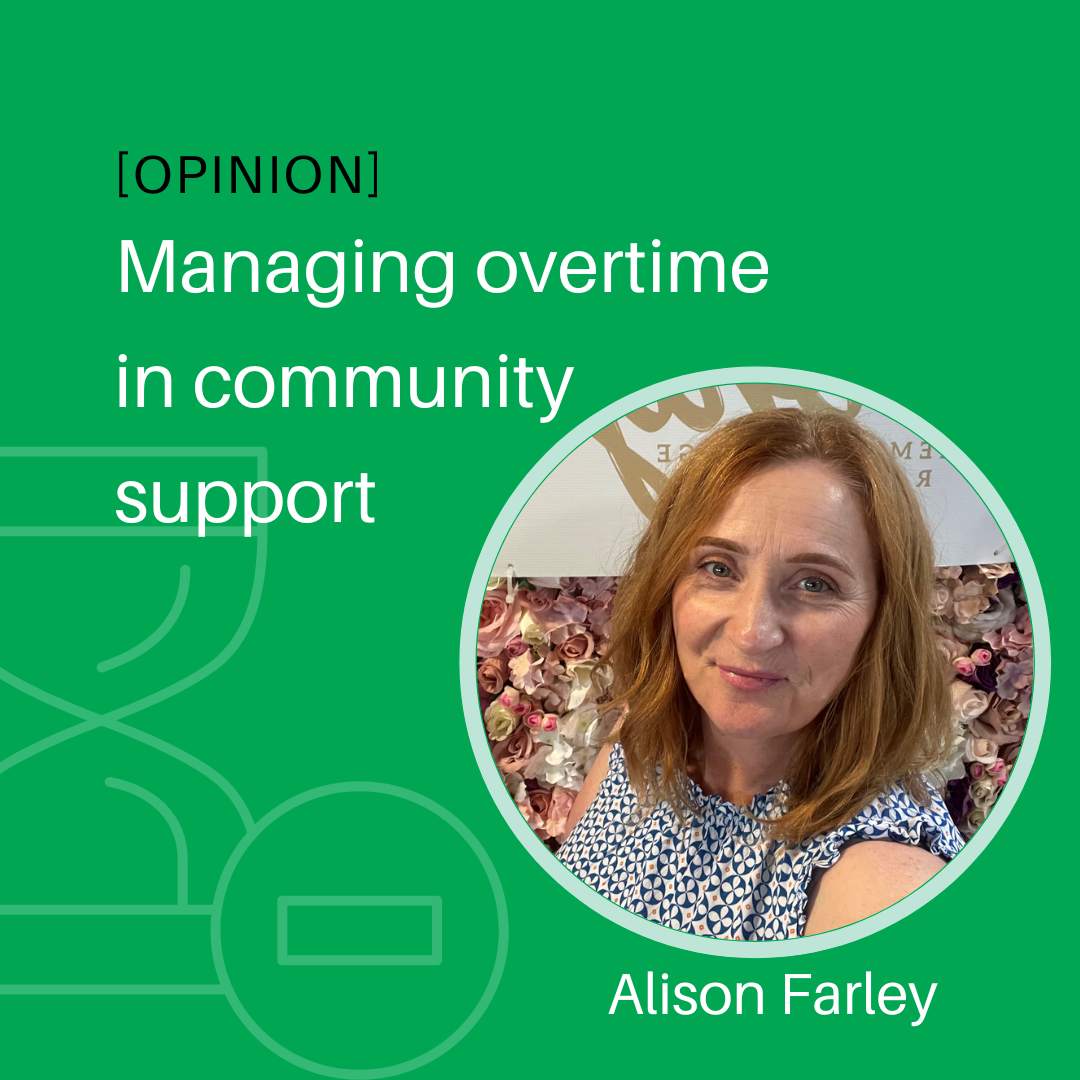Looking for work? Search our casual roles
Edmen Community Staffing Solutions acknowledges the Traditional Owners of Country throughout Australia. We pay our respects to Elders past and present.

STAFFING PROVIDER OF CHOICE
Trusted by 1000+ Disability Support & Youth Workers
Edmen is one of Australia’s largest dedicated providers of Community Support Workers to Government and Non-Government Community Service organisations. Discover why Disability and Youth Support Workers choose Edmen.
SOLUTIONS FOR COMMUNITY SERVICES
Streamline your workforce management
Discover our workforce management solutions for community service providers. We partner with you to relieve pain points by building tailored solutions that centre around specialist expertise, scale and service.

Edmen Candidate Guarantee
Expect Respect and Kindness
A passionate and driven team that you'll enjoy working with.
No Hard Sell
Honest feedback about the role, the client and decision. Transparency is a priority.
Latest News
All
Meet the Team
Employees of the Month
Sector News
Edmen News
Articles

13 May, 2024
Meet Shady, a dedicated Youth Support Worker with a passion for making a difference in young people's lives. In this interview, shares insights into his career, highlighting moments that he finds most rewarding. He also discusses the perks of his work, including the opportunity for professional growth and development. Tell us a bit about yourself I’m a Youth Support Worker in Adelaide, South Australia. I’ve been working in the field for over 3 years now for a few different organisations. Why did you choose to join Edmen? I decided to join Edmen due to the fact it’s a bigger organisation, the pay rate is better and there’s a good amount of work. They also have a referral policy so if you refer people to work with Edmen you get rewarded, which is a perk. Generally speaking, it’s a good place. People are professional and they support their staff where it's needed. There is plenty of work and options when it comes to work. Why did you become a youth worker? I’ve been involved with kids for most of my life. I teach music and coach junior basketball. Plus in church, I volunteer to help with kids’ camps. About 3 years ago it struck me why don’t I make this a job. So I did the research, got the qualifications and became a youth worker. How old are the kids you support? It varies. With Edmen I don’t have a specific placement or residential house I work in, so I get sent to a number of different houses. The youngest person I’ve supported was 9 and the oldest was 17. How long have you been working with Edmen? I’ve just hit the 6 month mark. Chat to us about your recent deployment to Mt Gambier I recently got deployed to go to Mt Gambier which was a fun experience. I was sent there to support a young people who is in residential care with one of Edmen’s client organisations. I got a call from my Service Coordinator, who asked if I was interested and explained how the pay and allowances would work. Mt Gambier looked really nice so I went and it ended up being a very good time. The city itself is chill, quite small and quiet and I had the chance to see some sights in my free time like the Blue Lake. During my 4 days in Mt Gambier, I was working day shifts and passive nights and was staying at the placement or residential facility. The young person I was supporting loved fishing, so we drove a couple of times to Port McDonald and spent a few hours crabbing there which was a lot of fun. What do you like most about being a Youth Worker? Engaging with the young people and doing activities with them. I enjoy helping them with daily tasks like school, homework, gym or training. Even like cooking together and gaming, it’s a diverse job that changes day-to-day. Can you run us through a typical day at work It depends on the shift, you can have a day, afternoon or night shift. Night shifts can be active or passive. Generally speaking, if it’s a day shift, you turn up really early when most likely the young people are still asleep. If it’s a school day, you start by preparing their school lunch boxes and checking that their uniforms are ready. Then it’s time to wake the kids up, arrange breakfast, then drop them off at school. While the young people are at school, we’ll go back to the placement and do some house chores and get prepared for the afternoon shift. After school, our duties include helping with homework, cooking dinner, getting the kids to sport training or to any appointments. After that, it’s time to prepare the young people for bedtime. If it’s a school holiday, the routine is obviously different. They might stay at home or go out and do an activity, but as the youth worker, we still help plan the day. Do you have any highlights or standout moments as a Youth Support Worker? For me, one of the most rewarding parts of the job is the mentoring that’s involved and imparting general life advice and knowledge. This happens a lot. For example, when we go shopping, I ask the young person to pay so they can understand about money and develop their numeracy skills. When we go grocery shopping, I ask them to help do the meal planning with me. These are everyday tasks where there are little moments throughout the day where I can see I’ve made an impact in developing their life skills. What’s your favourite thing about working with Edmen? The pay rate is good. The app that we use to make ourselves available or unavailable to work is efficient. There are also some great opportunities to be had, like my recent trip to Mt Gambier, and the refer a friend policy is great. What’s the hardest part of your job? The challenging behaviour of some of the young people. That’s something that you’re always dealing with as part of the job, but with sufficient training this can be overcome. Most of the organisations, including Edmen provide training on how to deal with these situations. Do you have any advice for anyone thinking about becoming a Youth Support Worker? Go for it. It’s great and such a rewarding career. Pay attention to the training and follow the advice of your manager. Ready to make the jump and join Edmen? Check out our open Youth Support Worker roles and apply today.

By Alison Farley
•
18 Apr, 2024
In the world of community service organisations, the challenge of balancing operational costs with uncompromised service delivery is more pronounced than ever. Amidst the backdrop of a rising cost of living, organizations are on a quest to find sustainable ways to cut down expenses without sacrificing the quality of support provided to those in need. One strategic approach to achieving this balance involves the meticulous management of overtime, particularly when rostering community support workers. Alison Farley, National Manager of Client Service and Delivery, sheds light on how a disciplined approach to overtime can serve as a linchpin in operational efficiency and service excellence. Overtime: A Last Resort, Not a First Option At the heart of sustainable operations is the principle of treating overtime as a measure of last resort. This philosophy is not just about cost-saving; it's fundamentally about safeguarding the welfare of community support workers and, by extension, the quality of service they provide. Overtime, when overused, can lead to worker fatigue, which poses risks not only to the employees themselves but also to the organisation and those it serves. The Edmen Approach: Striking the Right Balance Edmen Community Staffing Solutions exemplifies how a strategic approach to overtime can yield significant benefits. By prioritising this as a last resort, Edmen not only facilitates financial savings for community service providers but also champions the well-being of workers. The approach is two-fold: Firstly, implementing a clear and stringent approval process for overtime ensures that it is used judiciously and only in times of absolute necessity. This fosters a culture of accountability and emphasises the critical nature of planning and resource allocation. Secondly, the power of data cannot be overstated. Edmen's commitment to transparency and control is exemplified through comprehensive reporting and the provision of real-time dashboards for their clients. Surprisingly, regular reporting on overtime is not a universal practice, which can obscure visibility and hamper effective management. By making overtime data accessible and digestible, Edmen empowers its clients with the insights needed to make informed decisions and adjustments. The Edmen Advantage: Expertise and Scale What sets Edmen apart is not just their approach to managing overtime but their deep-seated expertise in the community services sector. This, combined with their extensive pool of support workers and an ongoing recruitment strategy, places Edmen in a unique position to offer scalable solutions tailored to the specific needs of community service organisations. Their exceptional service delivery model ensures that client partners and workers alike receive the support and resources they need to thrive, even in the face of operational and financial challenges. A Blueprint for Sustainable Service Delivery As community service organisations navigate the complexities of operating in a cost-conscious environment, the management of overtime emerges as a critical lever for ensuring both financial sustainability and the well-being of support workers. Alison Farley's insights underscore the importance of a disciplined, data-driven approach to overtime, highlighting how strategic rostering can pave the way for more efficient and effective service delivery. Through a combination of expertise, accountability, and innovative use of technology, Edmen showcases how organisations can maintain high standards of support while also adhering to stringent operational budgets. In doing so, they offer a blueprint for community service organisations looking to achieve a delicate balance between cost efficiency and uncompromised care. In essence, the journey towards operational efficiency and exceptional service delivery is multifaceted. It demands a commitment to strategic planning, a culture of accountability, and an unwavering focus on the well-being of both workers and those they support. As community service organisations look to the future, embracing these principles will be paramount in their quest to deliver meaningful support in the most sustainable way possible. Looking for workforce solutions or ways to make your rostering more efficient in your community service organisation? Get in touch and let us know about your workforce challenges.




